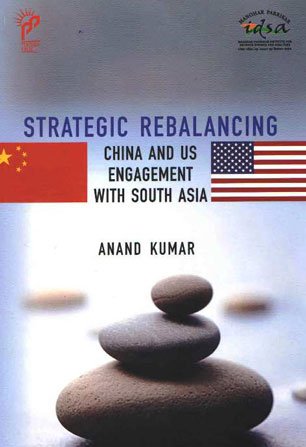Iran-Pakistan Relations: Political and Strategic Dimensions
Iran-Pakistan relations have had a distinct characteristic over the past five decades and Islamabad’s clandestine transfer of nuclear technology and materials to Iran underlines its significance. Political and strategic imperatives have formed the basis of their close relationship despite divergence of interests and political outlook on regional and global issues. Both the countries have tried to reconcile the differences and consolidate their ties.
Post-War Afghanistan: Reconstructing a Failed State
Afghanistan once represented a fragmented and failed socio-economic and political entity. Operation Enduring Freedom, while targeting the Taliban and Al Qaida as part of the global war on terrorism helped create the structure of a new Afghan State. This article analyses the challenges faced by Afghanistan and how the new Afghan elite and its foreign supporters seek to address them through constitutional means. The New Constitution provides the framework of how Afghanistan wishes to reconstruct the new State.
External Linkages and Internal Security: Assessing Bhutan’s Operation All Clear
Disruption of terrorist networks - intra-regional, inter-regional and trans-national - should be supplementary to the overall counterterrorism strategy. Larger issues including socio-economic and cultural can only be addressed in the long-term. The immediate goal, however, has to be an effective localised response. Otherwise, efforts like Bhutan’s counter-terrorism operations against ULFA, NDFB and KLO - popularly called ‘Operation All Clear’- may only have a partial impact.
Indo-Pak Relations and the SAARC Summits
The uncertainties regarding regular SAARC meetings have clouded the prospect of regional cooperation. Though India has been accused as the main culprit, other member-countries are no less responsible for the organisation’s lack of progress.
Nepal: Quest for Elusive Peace
Amidst the continuously expanding sphere of Maoist influence, political uncertainties and growing international interest, Nepal continues to remain one of the most volatile countries in South Asia. Recent developments have, once again, reconfirmed that while the Maoists have been successful in gradually pushing their agenda through violence and intimidation, the four-party coalition government led by Sher Bahadur Deuba is increasingly finding it difficult to evolve a coherent strategy to counter it.
Attack on Sheikh Hasina
On August 21, 2004, a little before 5.30 in the evening, there was a grenade attack on the Awami League leader, Sheikh Hasina Wajed. This occurred soon after she concluded her speech in a public rally close to the Awami League headquarters in Dhaka, which ironically was held to protest the recent grenade attacks in Sylhet. 11 of the 13 grenades hurled at the rally exploded instantly followed by indiscriminate firing fortunately missing the target, Sheikh Hasina, as she was hurriedly escorted into her bullet-proof car. The impact left 18 dead and hundreds wounded.
Pakistan’s ‘Sustainable Democracy’: Army as the Political Architect
Any study of political developments in Pakistan cannot be complete without examining the role of the Army. Though it might seem incompatible to talk of military and democracy in the same breadth, Pakistan provides an example of how the military has been able to govern the country as successfully as a civilian government. It has its own view of democracy, political stability and governance. It feels it has a political role which stems from the national security paradigm of the state.
Rise of Religious Parties in Pakistan: Causes and Prospects
Pakistan’s political climate has always been polarized between the civil and the military leaders, with balance of political fortunes tilting in favour of one or the other, from time to time. With the overthrow of Nawaz Sharif in a bloodless coup in October 1999, the military marched out of the barracks after more than a decade.
Bangladesh’s Political Evolution: Growing Uncertainties
Unlike many Third World countries, Bangladesh has remained relatively stable and peaceful and escaped from major internal upheavals. While the democratic transition in 1991 was slow and painful, democratic change of governments has become the norm. Leaders are changed through ballots and not bullets and power oscillates between the two principal parties.
















